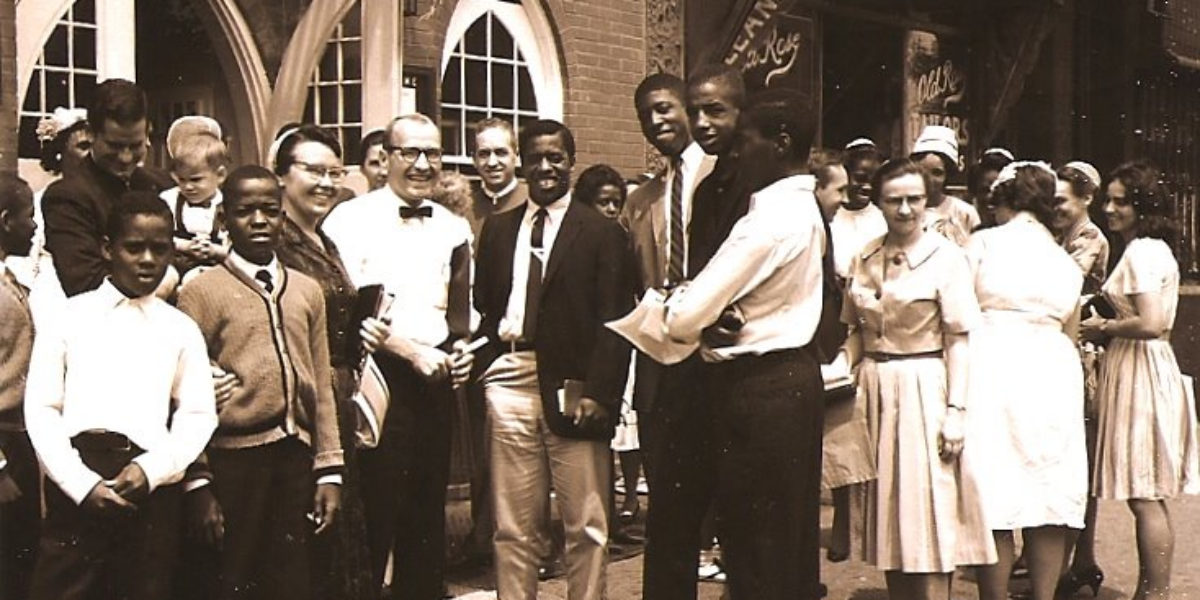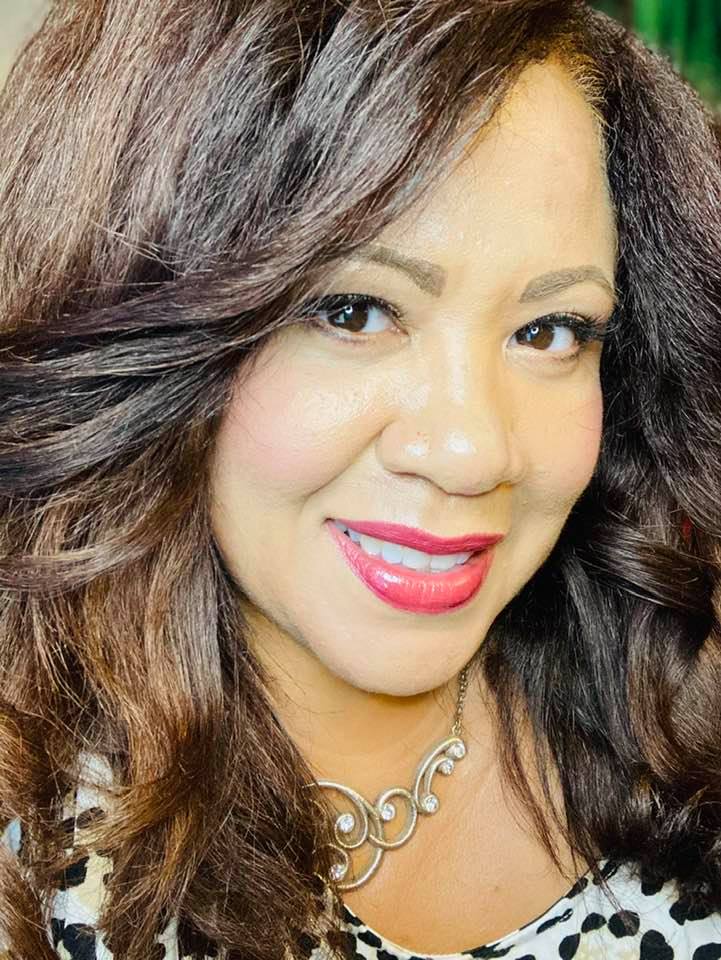This year’s theme for Black History Month, chosen by the Association for the Study of African American Life and History, is "Black Family: Representation, Identity and Diversity." As I reflect on this theme, the words of Audre Lorde, Harlem-born poet and civil rights activist, ring true in my soul: "If I didn’t define myself for myself, I would be crunched into other people’s fantasies for me and eaten alive."
How I represent myself, identify as a member of the Black Family, and authentically celebrate diversity has been deeply shaped by a three-pronged formation: my understanding of Black history, the history of my home church, and the spiritual calling of my parents to be a "catalyst for change." Within my own identity, I hold the tension of the historical trauma of the racist divide between Blacks and Whites and the audacious, radical love that embodies a catalyst for change and reconciliation.
I was born on December 29, 1969, to a White mother and Black father, and raised in the heart of Harlem, New York City, between the heat of the Civil Rights Movement and the rise of the Black Power Movement. Culturally, I self-identify as a Black woman.
I was three years old when the first Black woman, Shirley Chisholm, ran for president of the United States, in 1972. Representing New York, Chisholm became the first Black congresswoman, in 1969. She was also a founding member of the Congressional Black Caucus. In her memoirs, Unbought and Unbossed, published in 1970, Chisholm wrote, "Racism is so universal in this country, so widespread, and deep-seated, that it is invisible because it is so normal."
Indeed, racism was normalized and so was the belief that races should not mix, especially Black people and White people. That was the worldview that my parents were taught to believe yet had the audacity to change.
James Farmer founded the Congress of Racial Equality (CORE), in 1946. That same year, the U.S. Supreme Court banned segregation in interstate bus travel. In 1947, CORE led a movement called a "Journey of Reconciliation," in which Black people and White people rode together on a bus through the South. CORE sought to end discrimination and improve race relations through direct action.
In May 1961, CORE led a "Freedom Ride" on two buses from Washington, D.C., to New Orleans , Louisiana, with Black and White activists. The freedom riders were attacked twice by angry segregationists in Alabama — once outside of Anniston, and again in Montgomery.
Meanwhile, the Mennonite church in New York City was also responding to race relations. The church created a new space of radical love and beloved community in Harlem. Harlem Mennonite Church, now Seventh Avenue Mennonite Church, was established January 17, 1954, under the leadership of John Kraybill. The congregation was part of a missionary outreach of Lancaster Mennonite Conference, in partnership with Eastern Mennonite Board of Missions and Charities. Soon, Black and White Mennonites from Pennsylvania and Black Harlemites fellowshipped and worshipped together, in love and unity, counter to the social and cultural norms of the day.
My parents felt called by God to serve the community and the Mennonite church in Harlem. My father, Dr. Richard W. Pannell, came to Harlem from Coatesville, Pennsylvania, in 1961. My mother, the late Ethel M. Zeager Pannell, of Elizabethtown, Pennsylvania, arrived in Harlem a year later. Amid the resistance to racial integration and reconciliation, they married in 1964. In their own way, they were part of the movement that brought about change and reconciliation to the local community and broader Mennonite church.
This is my family history and the fabric that forged my identity. These are the seeds of change that have been planted in my heart. This is, as the late Rev. Dr. Katie Cannon stated, "the work my soul must have." Admittedly, the work of social justice, racial reconciliation and radical love for all humanity is a difficult journey and a daunting mission. Like many of those before me, I have experienced false hopes, unrealistic endeavors, ultimate failures and a sense of hopelessness. It takes tremendous faith, courage and resiliency to attempt to dismantle the more than 400 years of systemic racism and structured discrimination within our nation, and even within our own Mennonite churches and institutions. It takes the audacity of a radical love ethic that refuses to quit.

This collage represents part of Melody Pannell’s family tree. Top left is her maternal grandmother, the late Anna E. Landis Zeager, of Elizabethtown, Pennsylvania. Bottom left is her mother, the late Ethel. M. Zeager Pannell. Top right is her paternal grandmother, the late Ruth F. Carter Pannell Watkins of Coatesville, Pennsylvania. Bottom left is her father, Dr. Richard W. Pannell.
Two events have encouraged my soul to persevere. In summer 2020, after the horrendous public displays of racial terror and violence throughout the United States, I was invited to co-lead a year-long (September 2020-May 2021) Sunday-school class at Immanuel Mennonite Church (IMC) in Harrisonburg, Virginia. The title is, "A Journey: Jesus, White supremacy, the church, and the work of transformation."
IMC is located in the historically Black northeast community of Harrisonburg and articulates this vision: "to bring together our diverse cultures and expressions in a way that reveals Christ’s Kingdom of hope and wholeness in our lives and in our worship." IMC’s motto is "Real people following Jesus’ radical call to love and service." I have enjoyed engaging with this group of Christians committed to learning together and being transformed by God’s love and grace, concerning racial reconciliation.
Wednesday, January 20, I witnessed the inauguration of the first bi-racial, Black and Indian-American woman, Senator Kamala Harris, being sworn in as the vice-president of the United States. I felt deep joy in that sacred moment, knowing how far we have come as a nation and experiencing renewed hope for the healing journey ahead.
All this is a result of many risks taken, and changes made: the Freedom Riders’ actions; the courage of Shirley Chisholm to serve as a catalyst for change; the racial barriers that my parents crossed in ministry and marriage; the manifestation of the seeds of hope for racial reconciliation that were planted at Seventh Avenue Mennonite Church; and my belief, as a biracial woman, in the power of radical love to change the world.
This is my destiny.








